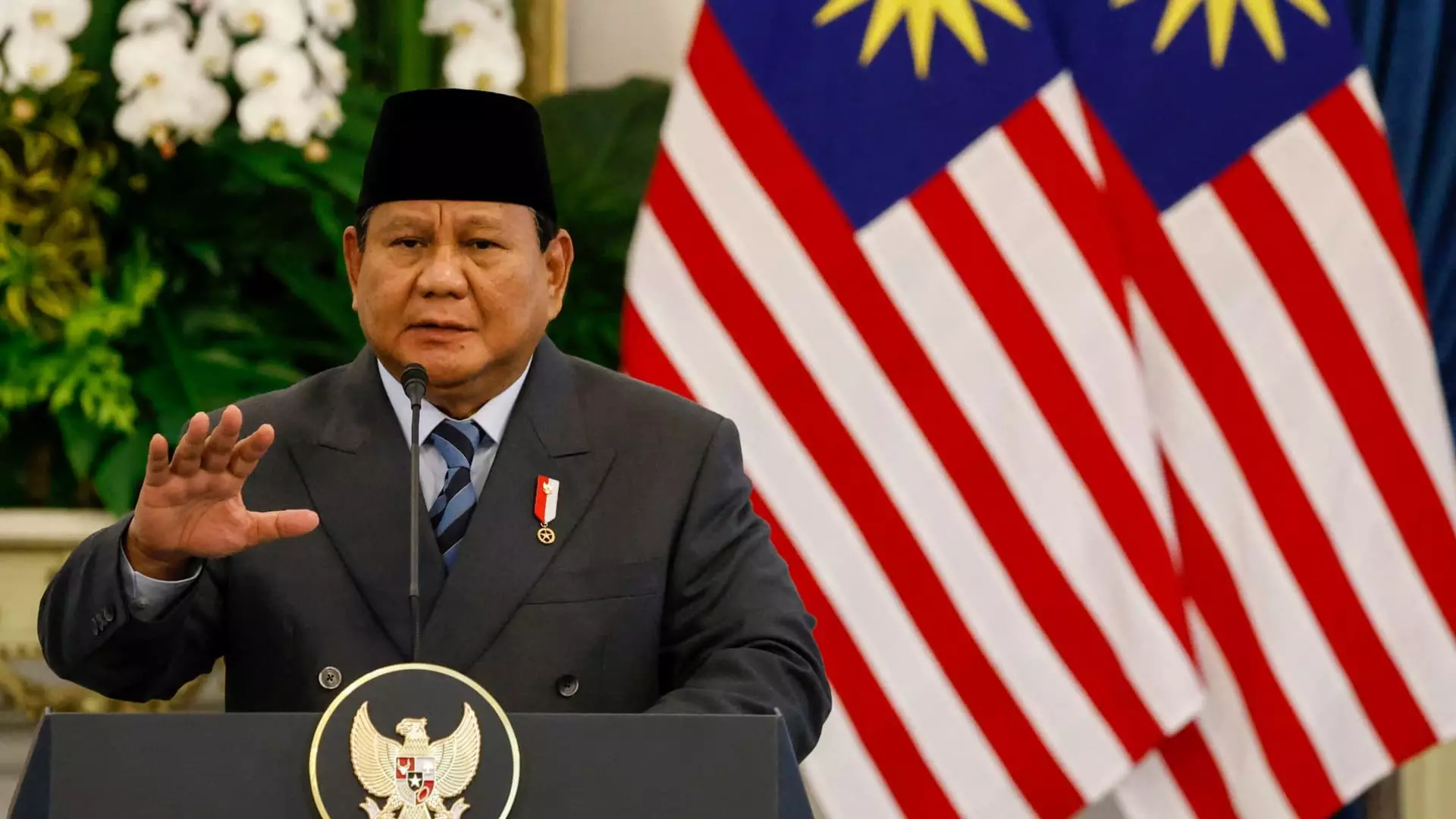In recent negotiations, the United States announced a framework agreement with Indonesia that promises to reduce tariffs and expand market access. While the White House portrays this as a triumph of reciprocity, a closer examination reveals a complex web of strategic concessions and unfulfilled ambitions. The narrative of “fair,” “balanced,” and “reciprocal” trade is increasingly problematic as it glosses over the unequal power dynamics that underpin international economic relations. Indonesia, like many emerging economies, often finds itself in the vulnerable position of negotiating with a hegemonic power whose economic interests and standards significantly influence the terms. This imbalance raises questions: Is the deal genuinely equitable, or does it serve primarily U.S. interests under the guise of mutual benefit?
The proposed tariffs—set at 19%, a figure that seems superficially moderate—are still perilously high compared to the lower 10% baseline tariffs the U.S. imposes on most trading partners. While initial American threats of a 32% duty aimed to severely punish Indonesia’s exports, the negotiated reduction to 19% suggests a capitulation to economic realities or political pressure. This is not a sign of fairness but of strategic compromise that preserves U.S. leverage while softening its stance. What we see here is a recurring pattern: the U.S. maintains the upper hand, dictating terms that continually favor its corporate sector, often at the expense of the poorer nation involved.
Greater Access, Greater Risk: Who Truly Benefits?
The promotional language surrounding this deal emphasizes “unprecedented access” for American producers, especially in energy, aerospace, and digital markets. It sounds promising—each paragraph brimming with optimism about expanding opportunities. Yet, such rhetoric masks underlying issues. Increased access for U.S. firms could flood already overstressed Indonesian markets with imports, undermining local industries struggling to stay afloat. This raises an uncomfortable question: Are Indonesian workers and small industries getting a fair shake, or are they being steamrolled by American economic interests?
Furthermore, the deal’s emphasis on addressing “non-tariff barriers” and other obstacles hints at the ongoing struggle for American companies to navigate Indonesian regulations—regulations that are often designed to protect local businesses and promote sustainable growth. Will these barriers genuinely be addressed, or are they merely a euphemism for American corporations seeking easier entry and fewer restrictions? The risk here is a future where U.S. companies gain disproportionate influence, aligning Indonesian policies more with corporate interests than national development priorities.
The Broader Geopolitical Context and Its Consequences
This trade framework cannot be viewed in isolation. It forms part of a larger pattern of U.S. trade diplomacy that leans heavily toward reinforcing economic dominance under the banner of “reciprocity.” However, the reality is often quite different. The White House’s recent cherry-picking of deals—focusing on agreements with Vietnam, the Philippines, and now Indonesia—signals a strategic move to shore up influence in Southeast Asia.
Such deals come with political and economic risks. A short-sighted view might see this as a way to curb China’s growing influence in the region. However, these agreements risk igniting a cycle of protectionism and retaliatory tariffs, further destabilizing global markets. For Indonesia, a country navigating its path between modernization and sovereignty, these agreements could mean increased dependence on American markets and standards—an uneasy trade-offs with long-term consequences.
Moreover, the veneer of fairness is dangerously deceptive. From the perspective of a center-leaning liberalism, these negotiations should prioritize fair development, respect for sovereignty, and environmental sustainability. Instead, the focus remains on expanding U.S. economic footprints, often ignoring the social and ecological costs incurred by host countries. This pattern underscores the urgent need for a more principled approach to international trade—one that balances economic interests with the needs of workers, local communities, and sustainable growth.
This latest trade agreement illustrates the persistent imbalance of global economic relations. It highlights how purported reciprocity often conceals underlying dominance, where weaker economies are pushed into concessions that serve the strategic and corporate interests of powerful nations. While there may be superficial gains for Indonesia, the long-term implications could compromise its economic sovereignty and social stability, raising critical questions about the true cost of perceived “progress.”



Leave a Reply